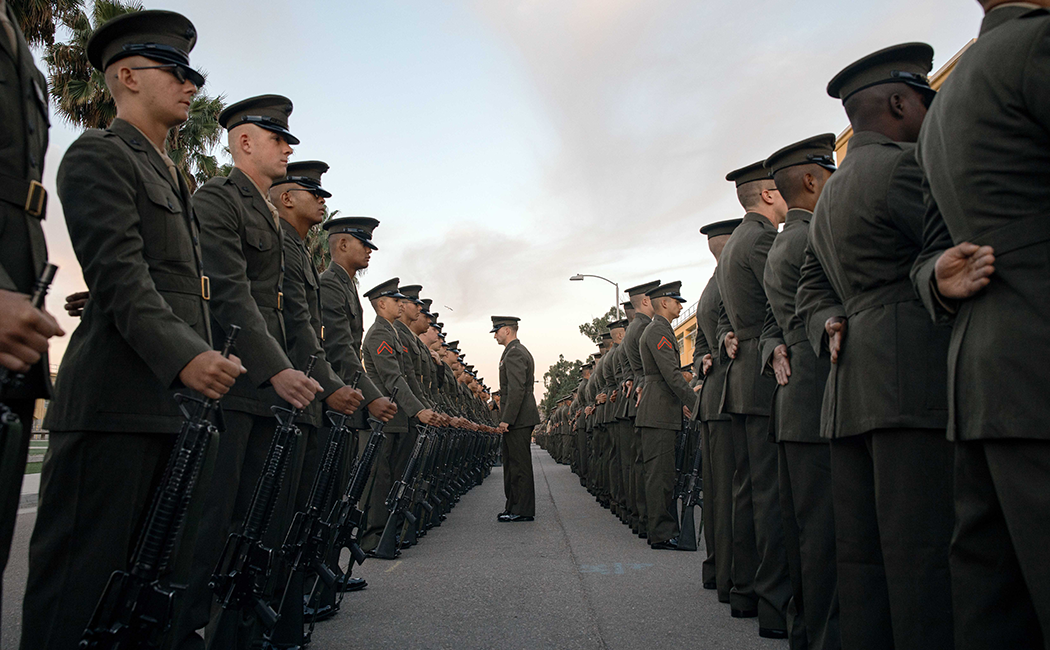Post-Military Retirement: Planning for a Secure Future
Post-Military Retirement: Planning for a Secure Future
Strategies for Financial Security, Health, and Well-Being After Military Service
Transitioning from a life of military service to civilian retirement is a monumental shift that requires careful planning and forethought. Many service members face unique challenges when preparing for post-military life, from financial planning to healthcare adjustments. A well-thought-out retirement plan can make a significant difference in ensuring a secure, fulfilling future..
At Veterans Guardian, we understand the complexities involved in this transition. This guide covers essential strategies for financial security, healthcare planning, and lifestyle adjustments that can help retiring service members make a successful transition to civilian life.
1. Financial Planning for Military Retirement
A critical component of post-military life is financial security. With careful planning, Veterans can set themselves up for a comfortable retirement, reducing financial stress and creating a sustainable income stream.
Understanding Your Military Pension
One of the primary financial benefits of military service is your pension. Retirees with at least 20 years of service are eligible for a monthly retirement benefit, which is a significant source of income for many Veterans. The pension amount is calculated based on years of service and final pay, depending on the retirement plan under which you served (e.g., High-3 or Blended Retirement System).
Understanding your military pension can help you plan for additional income sources if needed. Consider how much of your post-retirement expenses will be covered by your pension and identify any gaps that may require additional savings or income sources.
Learn more about military pension benefits here.
Saving and Investing for the Future
In addition to your pension, savings and investments play a crucial role in securing your financial future. The Thrift Savings Plan (TSP), a retirement savings plan for federal employees and members of the uniformed services, is a tax-advantaged way to grow your retirement fund. If you have contributed to TSP during your military career, review your investment choices and consider adjusting them based on your risk tolerance and retirement goals.
After military service, it’s also worth exploring options like individual retirement accounts (IRAs) and other retirement savings accounts. Consult a financial advisor who can help you assess your current portfolio, optimize your investments, and develop a withdrawal strategy that supports a sustainable income.
2. Healthcare Planning for Retiring Service Members
Access to quality healthcare is essential for any retiree, and military members have specific options that make coverage affordable and accessible. However, it’s essential to fully understand your healthcare choices and select the best fit for your needs.
TRICARE for Retirees
Retiring service members and their families are eligible for TRICARE, the military’s healthcare program. Depending on your location and coverage needs, you may choose from TRICARE Prime or TRICARE Select. Each plan provides comprehensive coverage, including doctor visits, hospital care, and prescription medications.
TRICARE also offers coverage for dental and vision care through TRICARE Dental and TRICARE Vision. For those living overseas, TRICARE Overseas provides options tailored to expatriates. Familiarize yourself with the coverage details and costs of each plan to select the one that best fits your retirement lifestyle.
Learn more about TRICARE plans for retirees.
Transitioning to Medicare
Once you reach age 65, you’ll become eligible for Medicare, a federal health insurance program for individuals over 65. Medicare works in conjunction with TRICARE For Life (TFL), which becomes your secondary payer, covering expenses that Medicare does not. This combination provides broad coverage, making healthcare more affordable and accessible in retirement.
Explore your Medicare options and how TRICARE For Life works.
Long-Term Care Options
Long-term care is an often-overlooked component of retirement planning. As you age, the need for assistance with daily activities may increase, and long-term care insurance can help cover these expenses. While TRICARE does not cover long-term care, Veterans may be eligible for services through the Department of Veterans Affairs (VA), which offers specific programs for elder Veterans. Research these options carefully to ensure your needs are met if long-term care becomes necessary.
3. Making Lifestyle Adjustments Post-Service
A fulfilling retirement is about more than just financial and healthcare planning; it’s also about creating a balanced, purposeful lifestyle. Adjusting to civilian life and finding new ways to stay engaged can contribute to both your mental and physical well-being.
Continuing Education and Skill Development
Transitioning from military life offers Veterans the opportunity to pursue new skills and interests. Many retirees consider using their GI Bill benefits to fund education or training in a new field. Pursuing additional education or certifications can lead to new career opportunities, even in retirement, or provide personal enrichment in areas you’ve always been passionate about.
Explore GI Bill benefits for education and training.
Finding Employment Opportunities
Many Veterans transition to civilian careers after retirement. Your military experience and skills are highly valued in various sectors, including public service, defense contracting, and corporate management. The VA’s Veteran Employment Services Office (VESO) and resources like Hire Heroes USA provide job-search assistance, resume building, and interview preparation tailored specifically for Veterans.
Engaging in Hobbies and Community Service
Retirement offers a chance to engage in hobbies and give back to your community. Many Veterans find meaning and purpose in volunteering, whether it’s mentoring young service members or participating in local Veterans’ organizations. Activities such as gardening, woodworking, or hiking can also provide relaxation and a sense of accomplishment. Seek out local Veteran organizations and community groups where you can connect with other Veterans and contribute to meaningful causes.
Find volunteer opportunities for Veterans here
4. Building a Strong Support System
Support from family, friends, and community is essential for a smooth transition. Building a network of supportive relationships can help ease the adjustment process and ensure you have someone to turn to when challenges arise.
Veterans Service Organizations (VSOs)
Organizations like the American Legion and Veterans of Foreign Wars (VFW) offer support, community, and advocacy for Veterans. They provide resources ranging from benefits assistance to mental health support. Joining these organizations can help you stay connected to the military community and provides access to additional resources that can support your retirement.
Mental Health Support and Counseling
Transitioning out of military life can sometimes bring unexpected challenges, and many Veterans benefit from mental health support during this time. The VA provides free counseling services through Vet Centers, which offer group counseling, family support, and stress management services. Additionally, the Veterans Crisis Line is available 24/7 for Veterans in need of immediate assistance.
Access counseling and mental health support through the VA.
Conclusion: Preparing for a Secure and Fulfilling Post-Military Life
Military retirement marks a new chapter full of opportunity and change. By focusing on financial planning, healthcare management, and lifestyle adjustments, you can build a retirement that offers stability, health, and personal fulfillment.
At Veterans Guardian, we honor the sacrifices made by service members and are here to help Veterans achieve the secure future they deserve. Whether you’re just beginning your retirement journey or are seeking additional guidance, we’re here to support you in making the most of your post-service life by helping you get the VA disability benefits you deserve.







